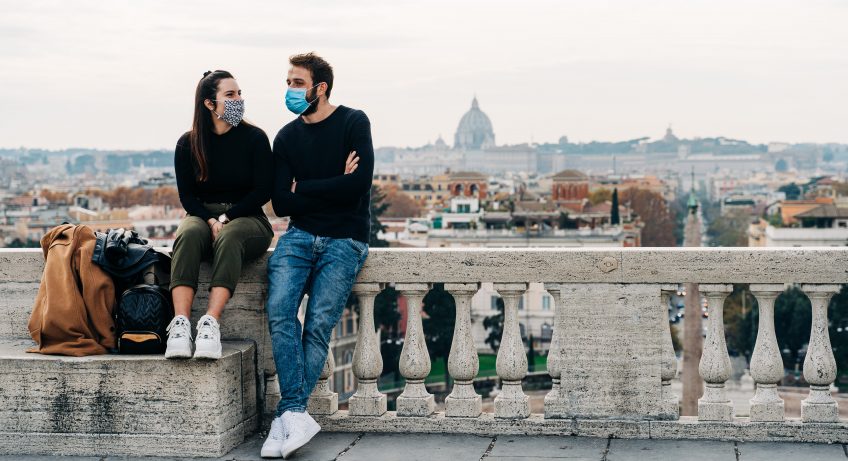The recent death of Colin Powell illustrates the continuing threat COVID-19 poses — even among those who are vaccinated. While most people who have gotten their shots experience only mild sickness, those with medical conditions remain at risk.
However, most people can’t isolate indefinitely — the realities of life prevent it. As society reawakens, you may need to hit the road once more. Here are the top six tips for how to travel safely during COVID-19.
1. Get the Facts
If you spend a lot of time on social media, you might already be acquainted with some of the conspiracy theories floating around the internet regarding the current pandemic. The blame doesn’t entirely lie with the folks spreading idle gossip. Estimable sources like the Centers for Disease Control and Prevention (CDC) have amended their mask-wearing guidelines multiple times, partially to manage supply-chain issues. However, a recent meta-analysis published in The Lancet supports their efficacy in controlling the spread of infectious diseases.
Therefore, it pays to ensure the sites you visit are reputable and science-based. How can you evaluate a site? Begin by looking at the publisher. For example, health care provider websites, including your doctors, should offer coronavirus information. You can also trust established sites such as WebMD, although you might feel more confident referring to data on the page for the physician you regularly see.
2. Carry Lots of Sanitizers
Fortunately, the Transportation Security Administration (TSA) does not consider wet wipes to be a liquid. Therefore, you should stock up before departure. While many airlines will provide you with sanitary wipes to clean your armrests and touchscreen controls, one is rarely enough to do a thorough job of germ removal.
You can also use wet wipes to clean your hands. You can carry up to 12 ounces in your passenger carry-on luggage until further notice. However, you should expect to spend longer at security if you take this option. The final decision rests with the individual TSA officer. Other liquids remain limited at 3.4 ounces.
3. Wear Your Mask
The meta-analysis mentioned above by The Lancet looked at 172 separate studies to evaluate the efficacy of mask-wearing in preventing infectious disease spread. They determined that face mask use could result in a large reduction in infection risk.
The n95 masks remain the gold standard in protection. If you are medically vulnerable, consider investing in one before you depart. Travelers on busses, trains and commercial flights must wear masks on the transport and while at the station or terminal — refusal to do so could result in fines or even imprisonment.
Consider protecting your eyes, too, especially if you’re medically vulnerable. Those who wear contacts should opt for glasses to avoid introducing the virus into their body when rubbing their eyes.
4. Upgrade If Possible
The further you are from an infected person’s coughs and sneezes, the less likely you will get sick. Unfortunately, much plane travel requires sharing uncomfortably tight quarters.
If you have the miles, please consider using them to upgrade. That extra few inches of space might not protect you — but it could help. If nothing else, it will make your journey more comfortable.
5. Dine Alfresco
Bars and restaurants were among the first businesses to close amid the pandemic because of the high infection risk. Anytime you have many open mouths in a confined space, you increase the overall concentration of germs.
One pleasant solution is to dine alfresco whenever the weather permits. Five identified studies examined the risk of COVID-19 and other upper respiratory infections and found that transmission increased significantly indoors. Seek out that sidewalk cafe in Paris for your baguette instead of sitting at the counter.
6. Get Vaccinated
Finally, the best way to travel safely during COVID-19 is to get your shots before you depart. You’re considered fully vaccinated two weeks after your second dose of a 2-dose shot or two weeks after a single shot, like Johnson and Johnson.
However, you should still take all other precautions on this list, even if you feel otherwise healthy. While Colin Powell had medical conditions, one Florida man who recently perished from the virus — despite being fully vaccinated — did not. The bottom line? Scientists still have much to learn about this novel virus. Protect yourself in the meantime.
Travel Safely During COVID-19
While the world returns to something resembling normal, the threat of the novel coronavirus hasn’t dissipated. Follow the six tips above to travel safely during COVID-19.

